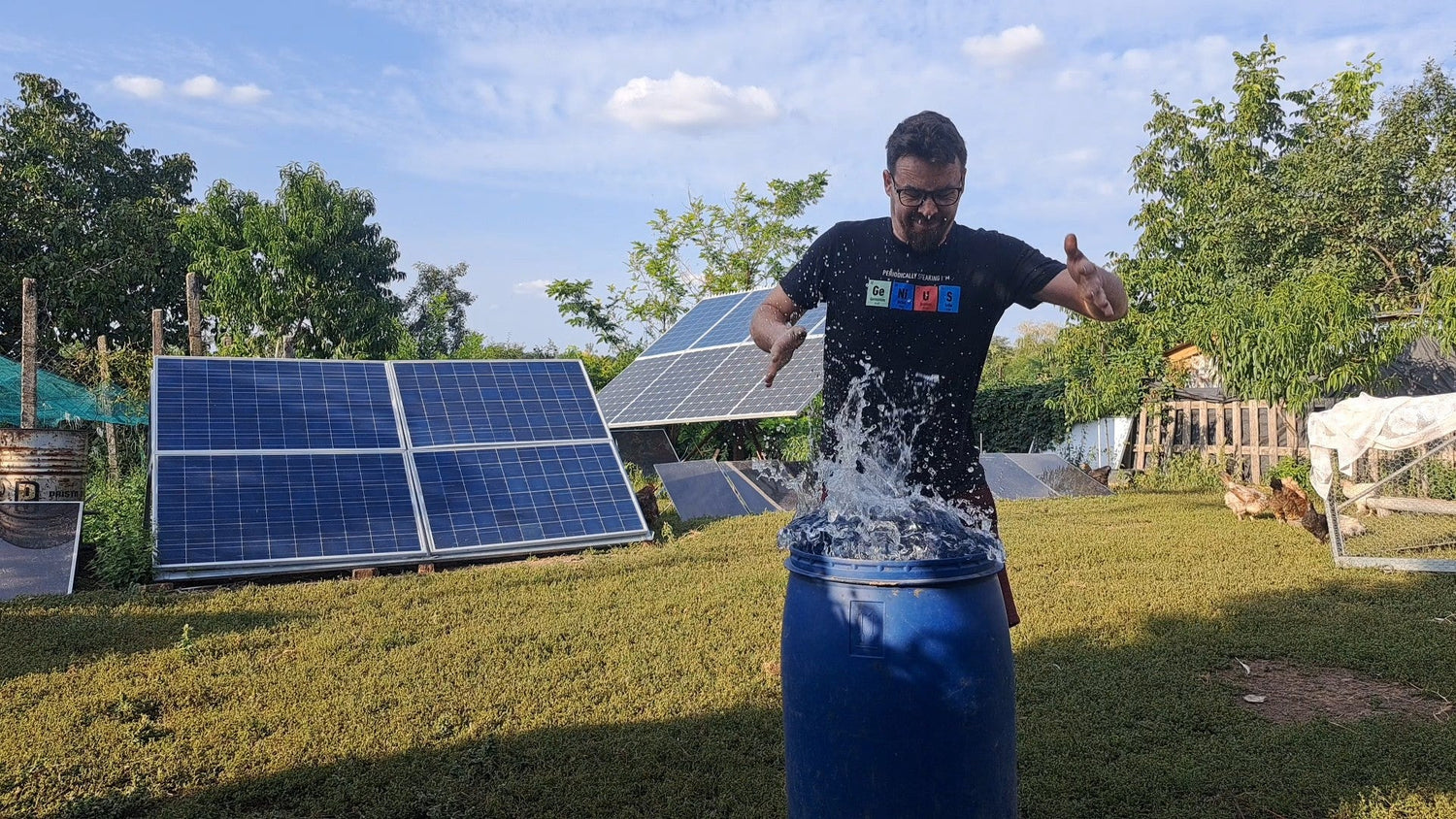As the world moves toward sustainable living and reducing its carbon footprint, energy storage technologies are playing a crucial role. One of the most prominent innovations in the realm of residential energy storage is the LiFePO4 battery (Lithium Iron Phosphate). While LiFePO4 batteries are widely known for their efficiency, longevity, and safety, they also offer significant environmental benefits when compared to traditional energy storage solutions, such as lead-acid batteries.
In this blog, we’ll explore how LiFePO4 batteries can contribute to a greener future for homeowners, offering a sustainable and environmentally friendly alternative to outdated technologies. By switching to LiFePO4 batteries in residential energy systems, homeowners can make meaningful strides in reducing their environmental impact while still maintaining an efficient energy supply.
1. A Cleaner, More Sustainable Alternative to Lead-Acid Batteries
One of the most notable environmental benefits of LiFePO4 batteries is their reduced impact compared to traditional lead-acid batteries, which have been widely used for energy storage for decades. Here’s why LiFePO4 batteries come out on top:
a. Reduced Toxicity and Hazardous Materials
Lead-acid batteries contain lead, which is a toxic heavy metal that poses serious environmental and health risks if not disposed of properly. Improper disposal of lead-acid batteries can lead to soil and water contamination, which negatively affects ecosystems and human health.
On the other hand, LiFePO4 batteries are made using non-toxic materials, with iron phosphate being the primary active compound. Iron is abundant, safe, and does not release harmful substances into the environment. Additionally, LiFePO4 batteries do not contain harmful elements like cadmium, mercury, or lead, which are commonly found in traditional batteries.
b. Longer Lifespan and Reduced Waste
LiFePO4 batteries have a longer lifespan compared to lead-acid batteries, typically lasting between 10 to 15 years (or even longer, with proper maintenance). This longevity translates into less frequent replacements and significantly reduced waste. In contrast, lead-acid batteries typically last only 3 to 5 years before needing replacement. The reduced need for battery disposal is an important factor in minimizing the overall environmental footprint of energy storage systems.
2. Efficiency and Energy Use: Maximizing Clean Energy Consumption
Switching to LiFePO4 batteries can significantly enhance the efficiency of a residential energy system that uses solar power or other renewable energy sources. When paired with solar panels, LiFePO4 batteries store excess energy generated during the day, allowing homeowners to use that energy during periods of low sunlight or at night, without relying on fossil fuels.
a. Reducing Carbon Footprint
The ability to store clean energy produced by solar panels or other renewable sources means less reliance on grid electricity, which is often generated from non-renewable sources like coal and natural gas. By storing energy efficiently with LiFePO4 batteries, homeowners reduce their carbon footprint and greenhouse gas emissions, directly contributing to efforts to combat climate change.
This reduction in reliance on fossil fuels is crucial for mitigating the effects of global warming and reducing environmental pollution. By maximizing the use of renewable energy and minimizing the need for grid electricity, homeowners help drive the transition to a cleaner and greener future.

3. Sustainability through Recycling and Reuse
Another important aspect of the LiFePO4 battery's environmental benefits is its potential for recycling. As LiFePO4 technology becomes more widespread, recycling programs for these batteries are becoming increasingly more efficient and accessible.
a. Easier to Recycle
Unlike traditional lithium-ion batteries or lead-acid batteries, LiFePO4 batteries are easier to recycle because they contain fewer toxic elements. The materials used in LiFePO4 batteries, such as iron and phosphate, are abundant and can be reused in other industries or products. Recycling processes for LiFePO4 batteries are improving, making it possible to recover valuable materials and reduce the need for new raw materials, which also helps conserve natural resources.
b. Reduced Environmental Impact of Manufacturing
Manufacturing traditional lead-acid batteries requires mining and refining large amounts of lead and sulfuric acid, both of which have significant environmental and safety concerns. On the other hand, the raw materials needed to produce LiFePO4 batteries are more abundant and less harmful to extract. Iron phosphate, for example, is much more abundant than lead, and it poses fewer environmental risks during production.
4. Supporting the Global Shift Towards Renewable Energy
As more homeowners and businesses move toward sustainable energy solutions, LiFePO4 batteries are playing a crucial role in facilitating the widespread adoption of solar power and other renewable energy sources. Their ability to store solar energy for later use has made them a popular choice in off-grid and grid-tied systems alike.
a. Enabling Off-Grid Living
For homeowners in remote or off-grid areas, LiFePO4 batteries provide a reliable way to store solar energy for use during times when sunlight is not available. This helps reduce dependence on diesel generators or other polluting energy sources, which are often the primary means of power for off-grid homes. By adopting LiFePO4 Batterien, these homeowners can achieve energy independence while reducing their carbon footprint.
b. Accelerating the Energy Transition
By providing a safe, long-lasting, and efficient means of storing renewable energy, LiFePO4 batteries are enabling homeowners to take full advantage of their solar systems, helping to accelerate the shift to clean energy. This, in turn, supports global efforts to reduce reliance on fossil fuels and transition to a more sustainable energy future.

5. final thoughts: The Greener Future of Residential Energy
The environmental benefits of switching to LiFePO4 batteries for residential energy storage are undeniable. By offering a safer, longer-lasting, and more efficient alternative to traditional lead-acid batteries, LiFePO4 technology helps homeowners reduce waste, lower their carbon footprint, and use more clean energy. Additionally, the increased recyclability of LiFePO4 batteries ensures that they contribute to a sustainable and circular economy.
For homeowners looking to make a positive environmental impact while also lowering their energy costs, adopting LiFePO4 batteries as part of their solar energy system is a smart, eco-friendly choice. As the demand for renewable energy grows, these batteries will continue to play an integral role in powering homes in an environmentally responsible way.
If you’re considering making the switch to a sustainable energy solution for your home, explore the potential of LiFePO4 batteries and learn how they can help you reduce your environmental impact while increasing your energy independence.





